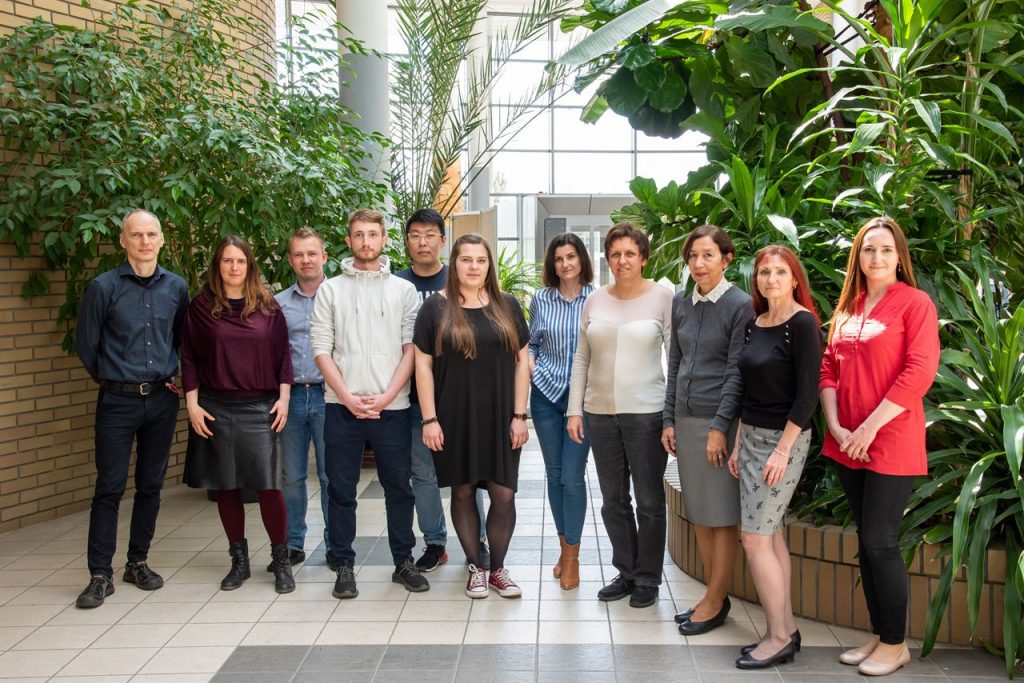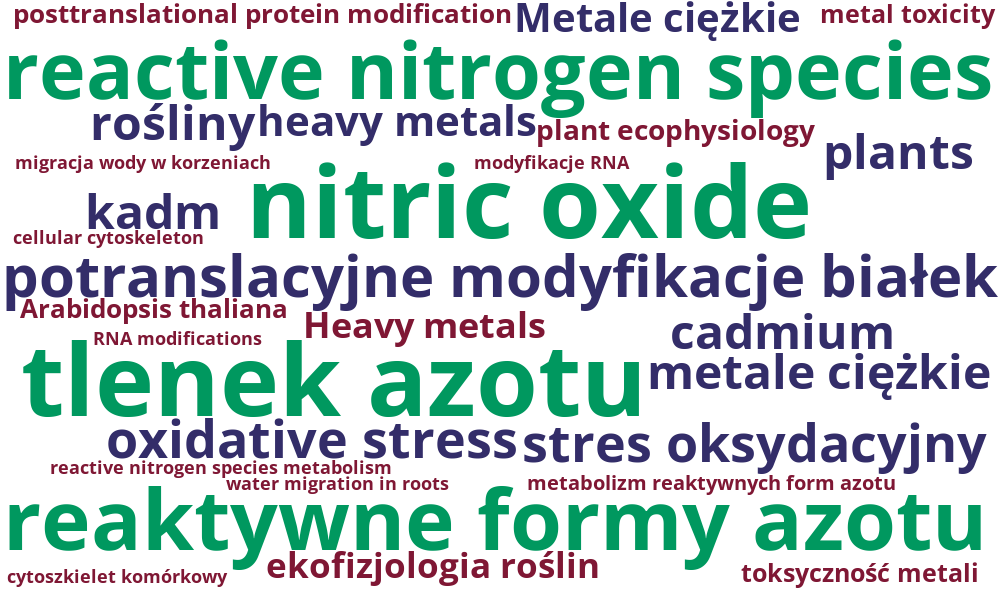Department of Plant Ecophysiology


The research of the team of Department of Plant Ecophysiology is mainly focused on the molecular aspects of plant responses to the adverse environmental factors of an abiotic (mainly metals) and biotic (mainly plant pathogens, such as Phytophthora infestans and plant pests, such as aphids) nature.
The analyses are mostly performed on crop plants such as soybeans, lupine, rapeseed and potato, the model plant Arabidopsis thaliana, as well as with the use of plant cell suspension cultures.
The research concerns (i) the role of nitric oxide (NO) in potato resistance to Phytophthora infestans, (ii) the explanation of the function of NO derivatives in plant cells, mainly under biotic and heavy metals stress, and (iii) the recognition of the function of reactive of nitrogen species (RNS) in plant pathogens.
We are also interested in (iv) understanding the signalling pathways triggered in plant cells in response to the abiotic and biotic factors and the simultaneous and sequential action of both factors.
An important aspect of our research concerns the structure and functioning of (v) the cytoskeleton and (vi) aquaporins in plant cells exposed to abiotic stresses. Another objective is focused on the understanding (vii) the functions of stress dependent RNA modifications in the response to adverse environmental conditions.
We are also interested in the study concerning (viii) biofortification of seedlings of crop plants with micro- and macronutrients and (ix) plants recovery after metal stress and hypoxia.














